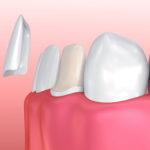Most people are born with more than one set of teeth in their jaws. Throughout certain points in our lives, these sets of teeth emerge. Babies see their first set of teeth appear around their first year of life and then lose those same teeth as they reach elementary school. Along with the replacement of …
Most people are born with more than one set of teeth in their jaws. Throughout certain points in our lives, these sets of teeth emerge. Babies see their first set of teeth appear around their first year of life and then lose those same teeth as they reach elementary school. Along with the replacement of old teeth, kids will also experience their molars coming in. Some special molars that appear as we age are called wisdom teeth.
What are wisdom teeth?
Wisdom teeth are molars typically found in the back of your mouth. An adult is expected to get three sets of molars throughout their lifetime. The first set is visible at age 6, the second set is expected to appear around age 12, and the final set, wisdom teeth, are set to make an appearance between the ages of 17-21. Wisdom teeth get their name because they appear later on in your life once you have matured.
Wisdom teeth are some of the toughest teeth that were historically and biologically used for grinding the food that you ate. However, over the years, as people have evolved, they no longer rely on their wisdom teeth at all. Wisdom teeth can actually cause harm to some people if they are not removed.
Not all people have wisdom teeth. Some people have all 4 while some are born without any. While family history might give you a clue as to how many you may have, if you are curious about your wisdom teeth it is best to get an x-ray of them and speak to a dentist. Having wisdom teeth doesn’t mean that they need to be removed. There are some people whose wisdom teeth have grown in and not caused them any problems. Though, many people choose to get their wisdom teeth removed to prevent them from getting infected or shifting their other teeth out of place.
Wisdom teeth removal
Since there is no longer a biological need for wisdom teeth anymore, many dentists recommend having them removed to eliminate the possibility of future problems occuring. Some of the benefits of having your wisdom teeth removed include:
- Reduced chance of having crooked or crowded teeth.
- Decreased risk of tooth decay.
- Reduced chance of developing jaw pain and cysts under the gums.
It is recommended that people get their wisdom teeth removed at younger ages because it’s much easier for them to heal.
Are older individuals not allowed to get wisdom teeth removal?
If you didn’t get your wisdom teeth removed in your late teens or early twenties, you may wonder if it’s too late. You are never too old to get your wisdom teeth removed. There are some risks associated with wisdom teeth removal at an older age such as:
- Increased recovery time
- Prolonged pain
- Risk of nerve damage
These risks are not a given and do not mean that you will necessarily experience all or any of them. They are simply possible outcomes of having the surgery at an older age.



